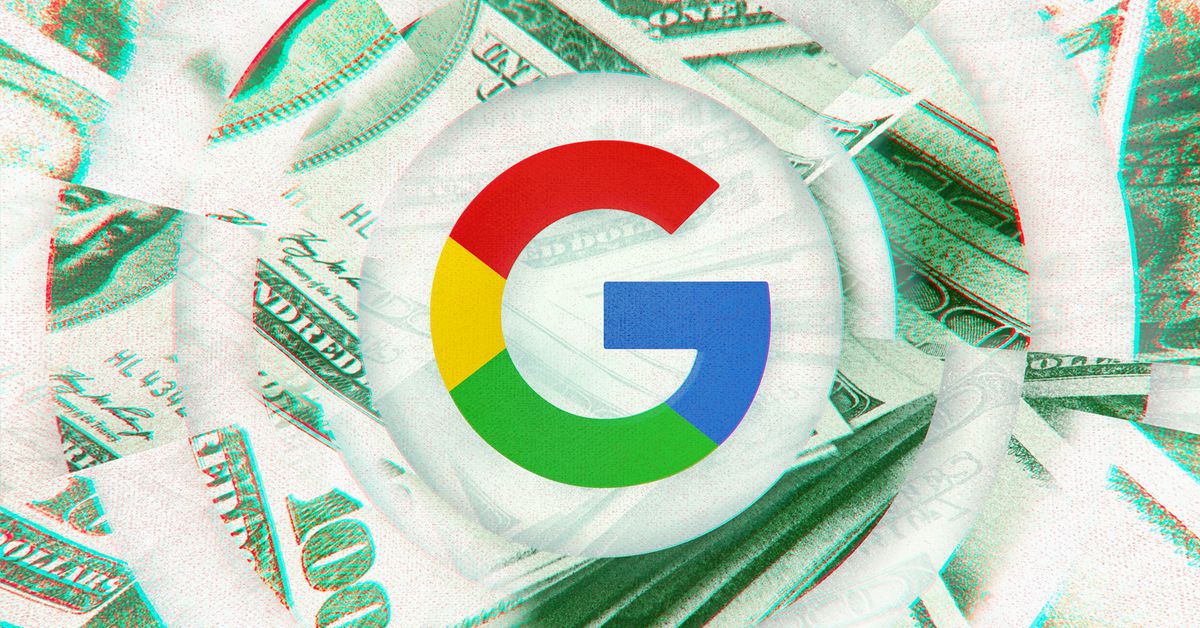
Yesterday, the Department of Justice and 11 states sued Google for violating antitrust law. The complaint argued that Google had become “the unchallenged gateway to the internet for billions of users worldwide,” but that its success depends on unfair and monopolistic behavior. In some ways, the case is an obvious and long-awaited move. But it’s also an early test of how American antitrust law will handle the coming decade’s tech giants.
Since the late 1970s, antitrust cases have typically focused on demonstrating consumer harm, like a company cornering the market on oil and jacking up gas prices with its power. This can be less straightforward with free services like Google search, but it’s hardly impossible. The landmark Microsoft antitrust case — which this complaint is modeled on — started when it released the free but widely disliked Internet Explorer browser while stifling the innovative paid competitor Netscape Navigator and limiting the overall market.
Google says it’s not the ‘90s anymore
Google has countered by saying that 2020 is a different era. “This isn’t the dial-up 1990s, when changing services was slow and difficult, and often required you to buy and install software with a CD-ROM,” it said in a blog post. “Today, you can easily download your choice of apps or change your default settings in a matter of seconds—faster than you can walk to another aisle in the grocery store.”
The Justice Department lays out a multipronged argument for why this isn’t right. It argues that Google has tipped the scales across web browsers, mobile devices, and emerging products like smart devices, ensuring that “all search access points funnel users in one direction: toward Google.” It pays for placement as Safari’s default iOS search engine — possibly providing a hefty chunk of Apple’s profits — and requires Android phone makers to preinstall search widgets on their phones. Meanwhile, its Chrome browser has around 60 percent of the US browser share, giving Google yet another venue for promoting search. “By using distribution agreements to lock up scale for itself and deny it to others, Google unlawfully maintains its monopolies,” the complaint says.
The filing touches on how this might affect consumers. It notes that some search companies, like privacy-focused startup DuckDuckGo or the subscription-based Neeva, could appeal to consumers who distrust Google’s targeted advertising or data collection policies. “Google’s control of search access points means that these new search models are denied the tools to become true rivals.”
“All search access points funnel users in one direction: toward Google.”
Google disagreed by saying that people proactively choose its product, even when it’s not the first option. In 2014, for example, Mozilla started offering Yahoo as its default search engine. “Most Americans promptly switched their search engine to their first choice —Google,” says Google. Mozilla ultimately terminated the deal early, citing “what’s best for our brand, our effort to provide quality web search, and the broader content experience for our users” as its reasons.
Some of the company’s critics have put forward counterexamples, making a case that Google’s search decisions aren’t actually good for users. In 2015, Yelp and legal scholar Tim Wu released a study arguing that Google’s reviews carousel offers inferior results from its own products rather than more relevant ones from third-party sites. When given a plug-in with alternative results, Google users would click more often on the non-Google offerings.
Yelp and TripAdvisor later launched a site called Focus On The User, which calls on Google to use an “organic, merit-based process” instead of favoring its own products. If this truly provided a better experience and Google faced more pressure to compete, the company would have a greater incentive to take that step. Accordingly, Yelp praised yesterday’s decision, with public policy head Luther Lowe calling it “a critical first step in confronting Google’s anticompetitive abuses and monopoly power in search.”
But there’s a bigger factor in play: lots of people want to overturn this consumer-centric standard, focusing on a much broader definition of harm. And that idea got a big boost earlier this month, when Congress released its sweeping report on monopolistic practices online. The Democratic majority called for establishing a legal standard “designed to protect not just consumers, but also workers, entrepreneurs, independent businesses, open markets, a fair economy, and democratic ideals.”
“The negative impact on society and democracy wrought by their surveillance business model is far worse.”
Critics of Google have offered reasons it fits that bill. “While Google’s anti-competitive practices hurt companies like us, the negative impact on society and democracy wrought by their surveillance business model is far worse,” said DuckDuckGo’s founder and CEO Gabriel Weinberg after the announcement. “The endless data collection and behavioral targeting originated by Google and forced onto the world through its search engine monopoly has led to discrimination, polarization, and the widespread false belief that getting privacy online is difficult.”
But the Justice Department is waiting for Congress to pass new laws that would let it focus on that case. According to some reports, the Department of Justice also rushed the case to announce it before the election. So it’s working with existing laws, at least for now.
Even so, Charlotte Slaiman of Public Knowledge, which praised the Justice Department’s complaint, says the processes can roll out in tandem. “I don’t think the case requires any changes to antitrust law in order to be successful. But I do think that Congress and an antitrust case can be working in parallel at the same time,” Slaiman says. As the Justice Department brings its case against Google, Congress can take a broader view of the industry — and potentially change the course of antitrust cases to come.
